takeLast() 只能取得 Array 固定最後筆資料,若想自行提供自訂條件 Predicate,就得使用 takeLastWhile()。
Version
macOS Mojave 10.14.5
VS Code 1.36.1
Quokka 1.0.233
Ramda 0.26.1
let data = [2, 4, 1, 3];
// takeLastWhile :: (a → Boolean) → [a] → [a]
let takeLastWhile = pred => arr => {
let result = [];
for(let i = arr.length - 1; i >= 0; i--) {
if (pred(arr[i]))
result.unshift(arr[i]);
else
break;
}
return result;
};
takeLastWhile(x => x % 2)(data); // ?
takeLastWhile() 意義為當 predicate 為 true 時從最後取得 element,直到 false 時停止取得。
建立 takeLastWhile(),imperative 會先建立回傳 result array,i 從最後 index 開始,當 predicate 成立時,從 result 前面塞進 element,不成立馬上離開 for loop,最後回傳 result。
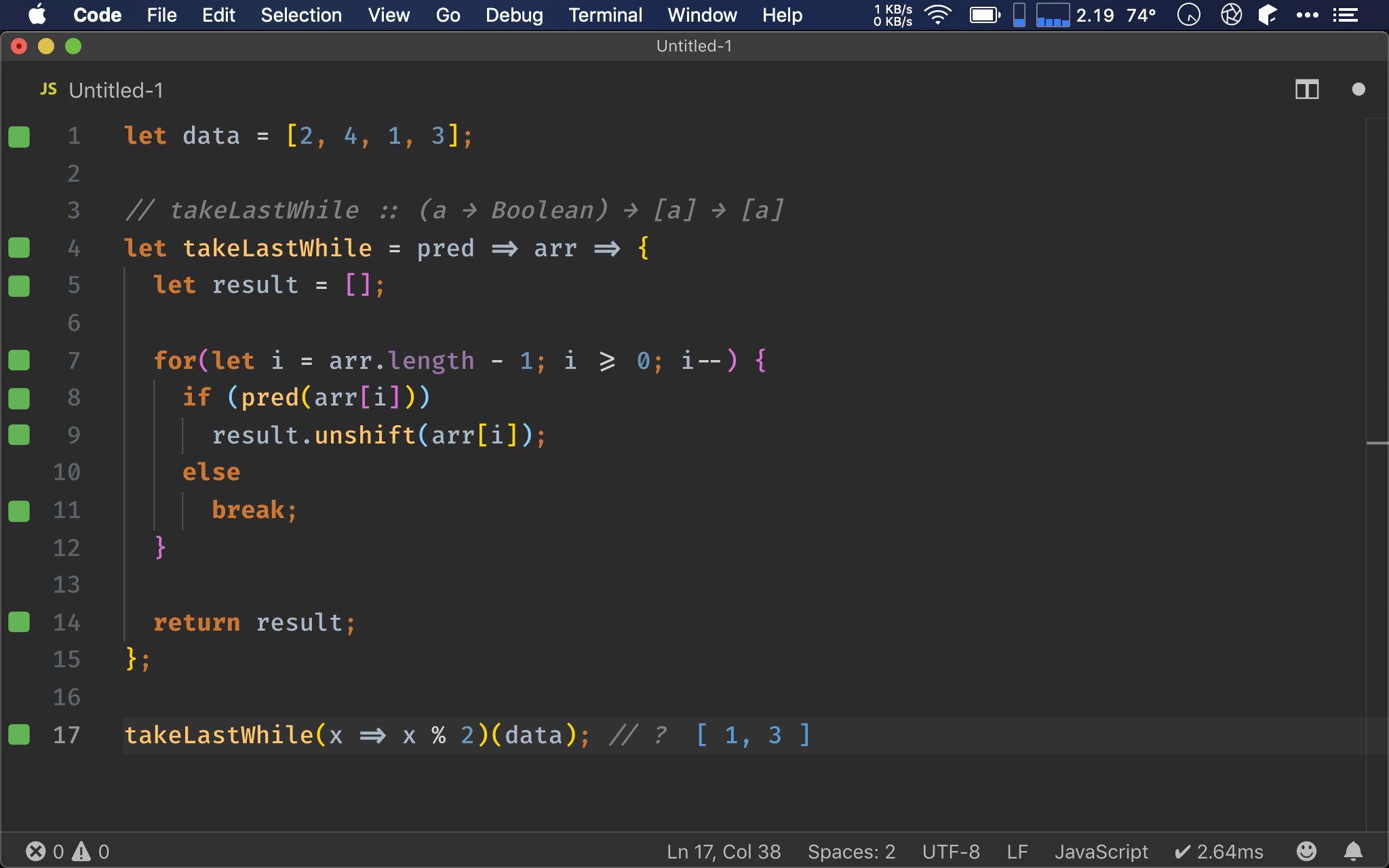
Functional
import { pipe, reverse, takeWhile } from 'ramda';
let data = [2, 4, 1, 3];
// takeLastWhile :: (a → Boolean) → [a] → [a]
let takeLastWhile = pred => pipe(
reverse,
takeWhile(pred),
reverse
);
takeLastWhile(x => x % 2)(data); // ?
若一開始不知道 takeLastWhile() 也沒關係,可藉由已知的 takeWhile() 加以組合:
- 使用
reverse()將 array 反轉 - 使用
takeWhile()根據 predicate 條件取得資料 - 使用
reverse()再將 array 反轉
最後使用 pipe() 組合所有 function,非常清楚。
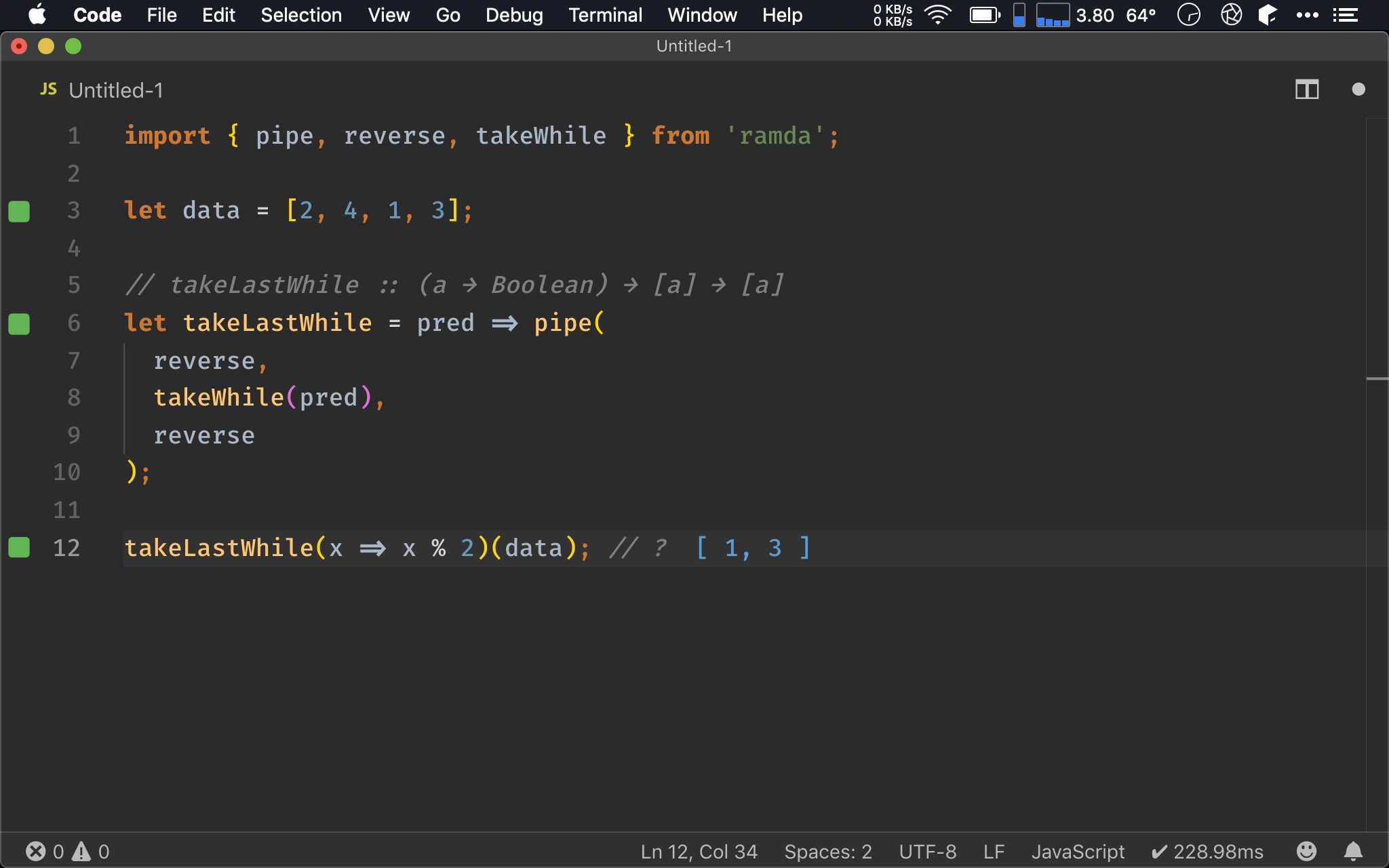
Point-free
import { pipe, reverse, takeWhile, useWith, identity } from 'ramda';
let data = [2, 4, 1, 3];
// takeLastWhile :: (a → Boolean) → [a] → [a]
let takeLastWhile = useWith(
pipe(takeWhile, reverse), [
identity,
reverse
]
);
takeLastWhile(x => x % 2)(data); // ?
也可以使用 useWith() 進一步將 pred point-free,由 pipe() 寫法可發現:
reverse()看似最後執行,但實則pipe(takeWhile, reverse)才是最後執行 function- 第一個 argument 為 predicate,因為不變,所以為
identity() - 第二個 argument 為
reverse()
由於第一個 argument 與第二個 argument 並不相關,明顯暗示需使用 useWith() 才能 point-free。
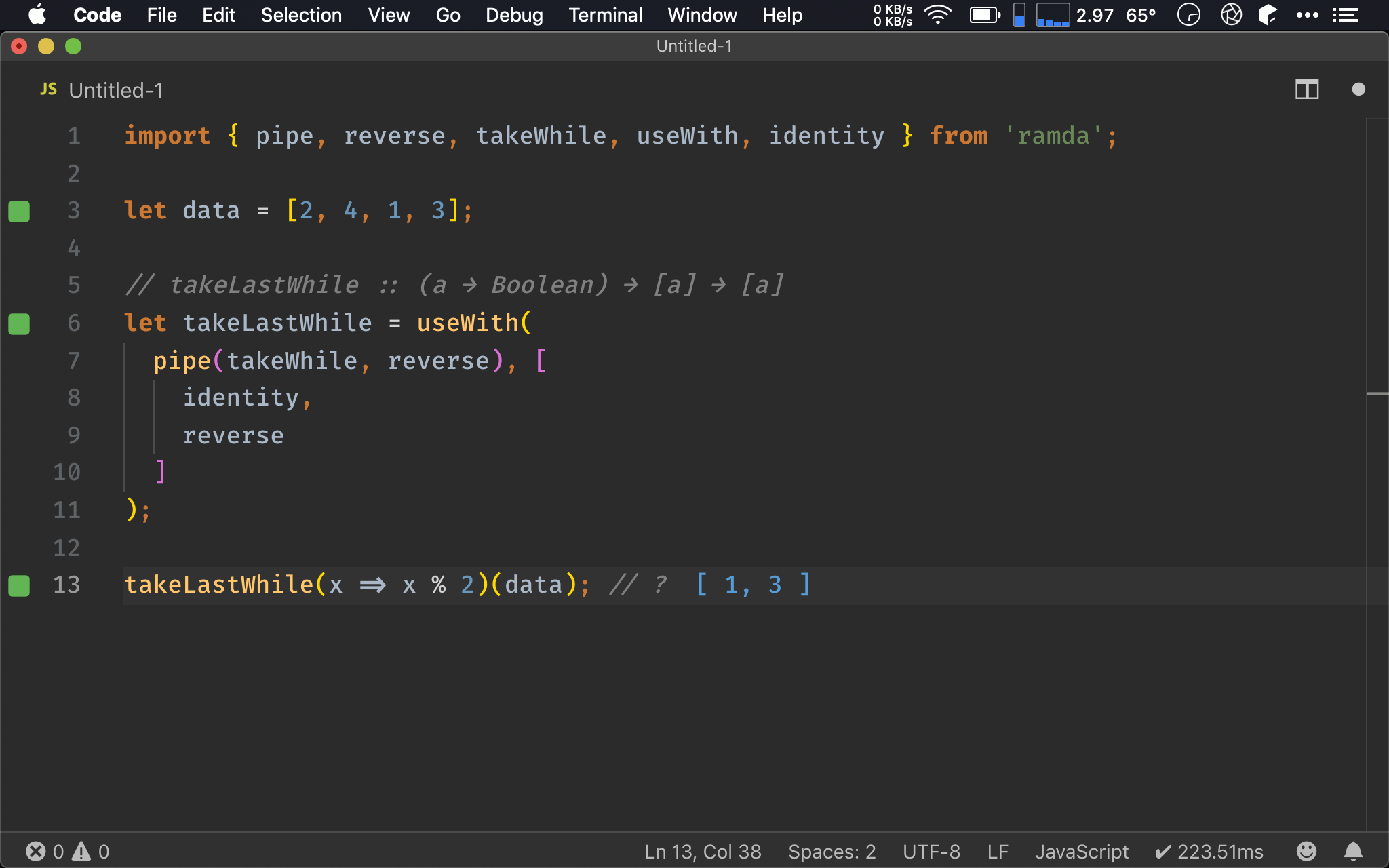
Ramda
import { takeLastWhile } from 'ramda';
let data = [2, 4, 1, 3];
takeLastWhile(x => x % 2)(data); // ?
Ramda 已經提供 takeLastWhile(),可直接使用。
takeLastWhile()
(a → Boolean) → [a] → [a]
根據自訂條件取得 array 最後幾筆資料
(a -> Boolean):自訂條件 predicate
[a]:data 為 array
[a]:回傳 array 最後幾筆資料
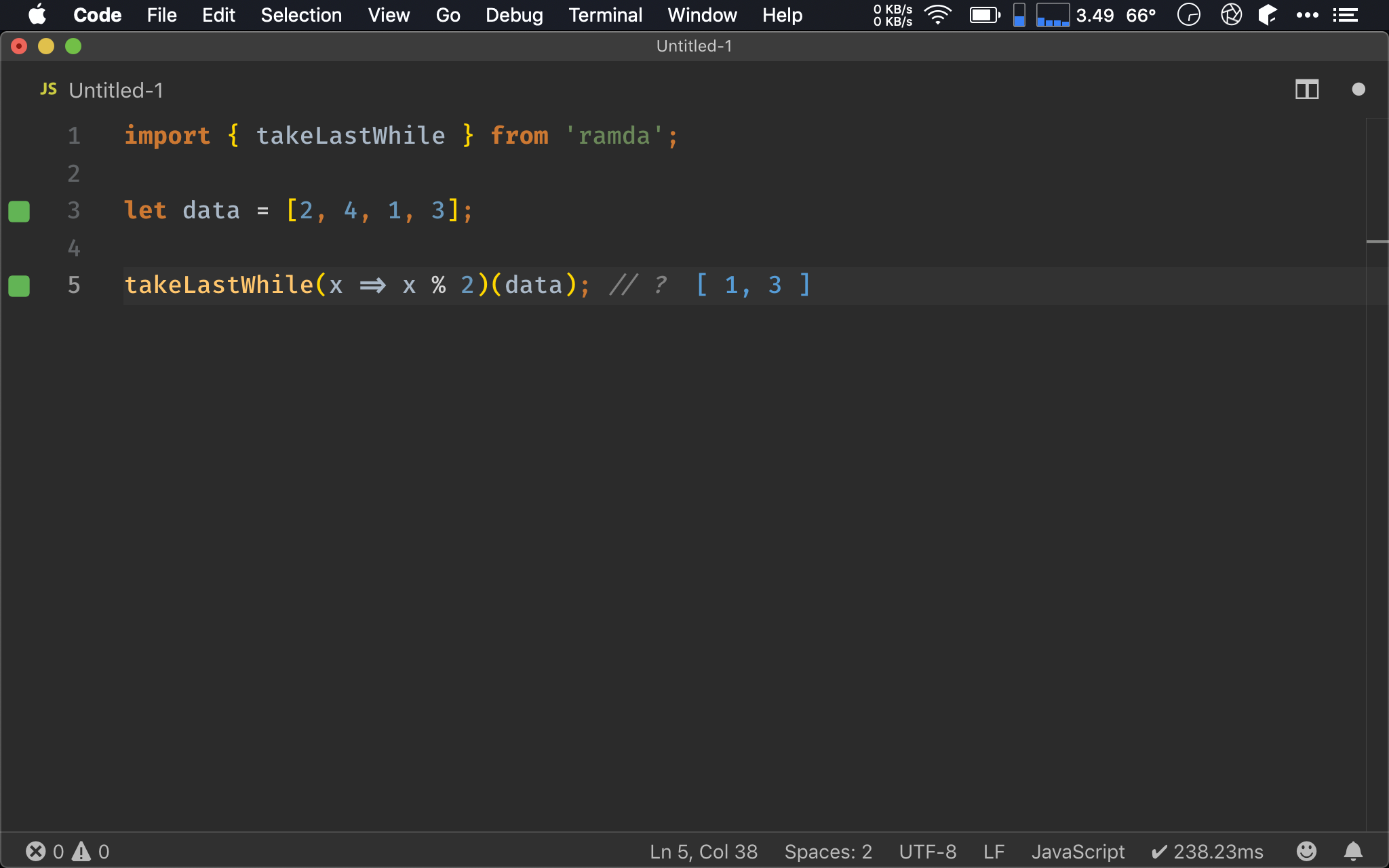
Point-free
import { takeLastWhile, compose, modulo, __, equals } from 'ramda';
let data = [2, 4, 1, 3];
let pred = compose(
equals(1),
modulo(__, 2)
);
takeLastWhile(pred)(data); // ?
也可將 x => x % 2 進一步 point-free。
- 使用
modulo()取得餘數,相當於% 2 - 使用
equals()判斷相等,相當於=== 1
最後使用 compose() 組合所有 function,非常清楚。
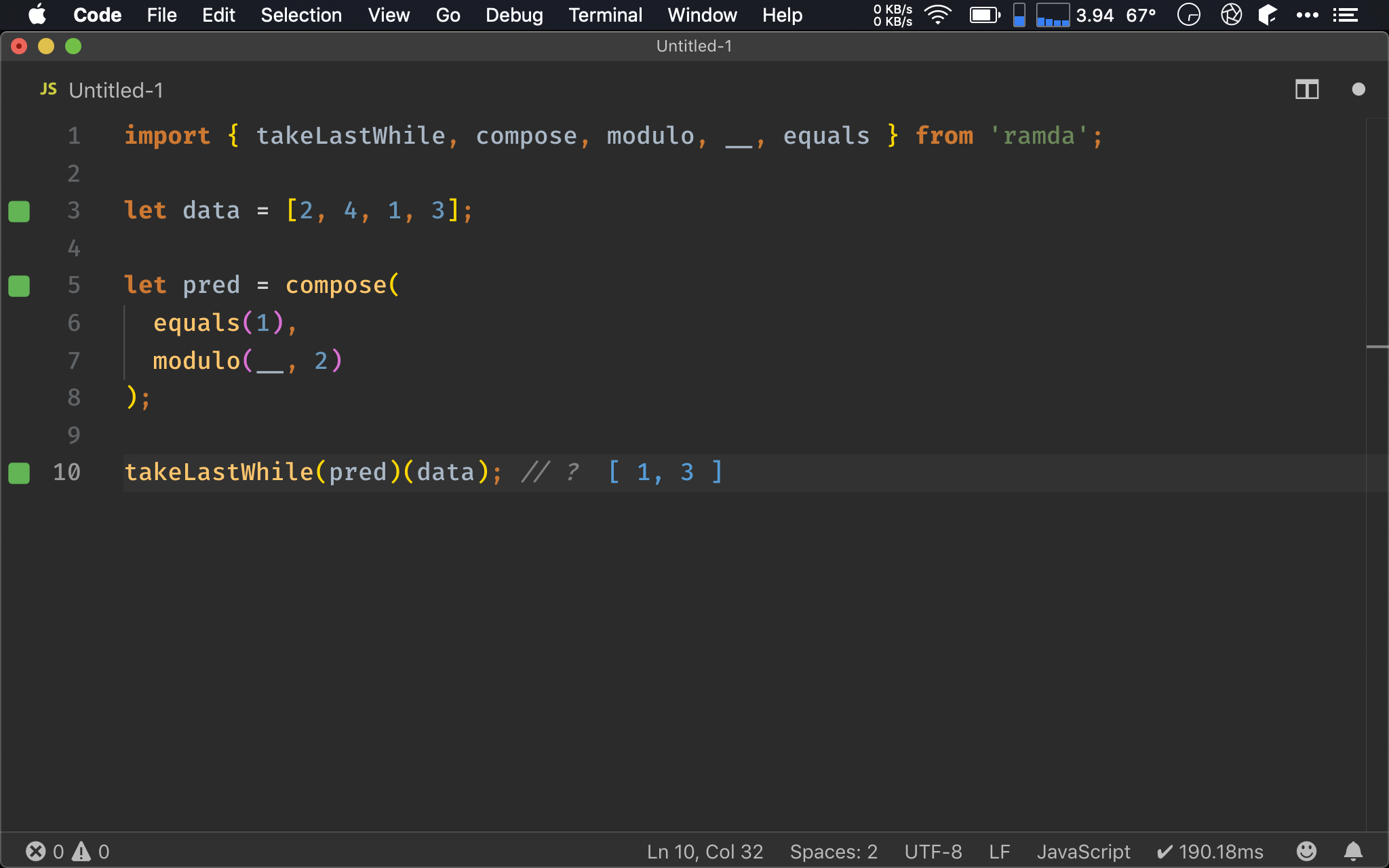
Object
import { takeLastWhile } from 'ramda';
let data = [
{ title: 'FP in JavaScript', price: 300 },
{ title: 'RxJS in Action', price: 203 },
{ title: 'Speaking JavaScript', price: 101 }
];
console.dir(takeLastWhile(x => x.price % 2)(data));
takeWhile() 也能用在 object。
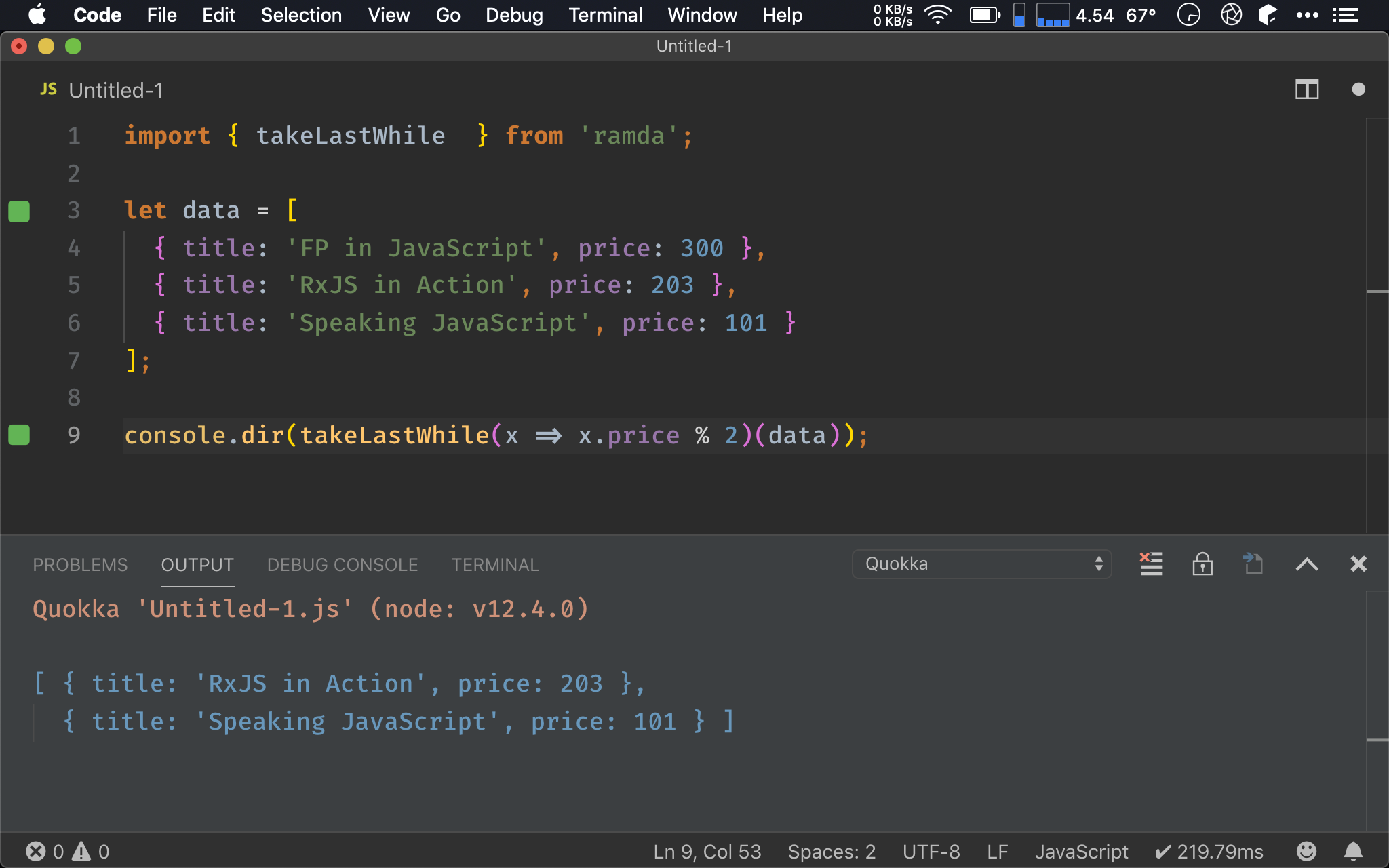
Point-free
import { takeLastWhile, compose, prop, modulo, __, equals } from 'ramda';
let data = [
{ title: 'FP in JavaScript', price: 300 },
{ title: 'RxJS in Action', price: 203 },
{ title: 'Speaking JavaScript', price: 101 }
];
let pred = compose(
equals(1),
modulo(__, 2),
prop('price')
);
console.dir(takeLastWhile(pred)(data));
也可將 x => x.price % 2 進一步 point-free。
- 使用
prop()取得 property 值,相當於x.price - 使用
modulo()取得餘數,相當於% 2 - 使用
equals()判斷相等,相當於=== 1
最後使用 compose() 組合所有 function,非常清楚。
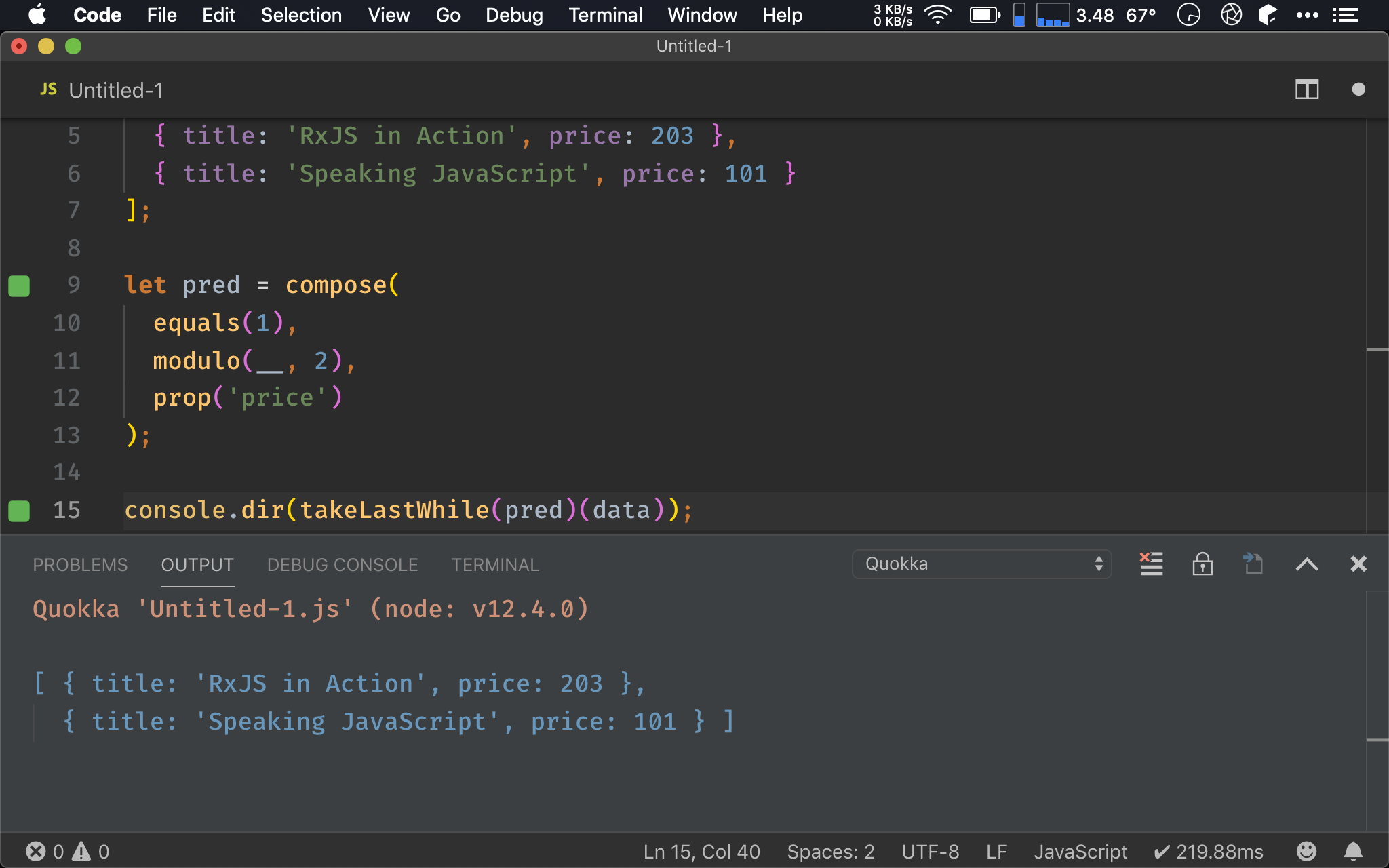
Conclusion
takeLastWhle()與takeWhile()用法很類似,但takeWhile()是取得前幾筆資料,而takeLastWhile()是取得最後幾筆資料takeLastWhile()除了用在 array,也能用在 string
Reference
Ramda, takeLastWhile()
Ramda, takeWhile()
Ramda, pipe()
Ramda, reverse()
Ramda, useWith()
Ramda, identity()
Ramda, compose()
Ramda, equals()
Ramda, modulo()
Ramda, prop()